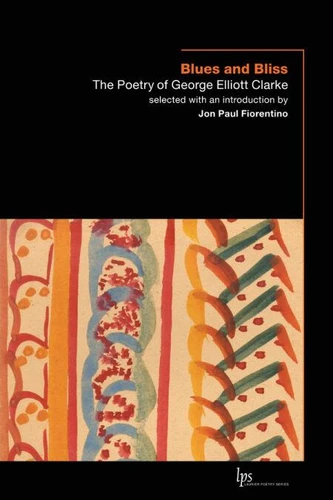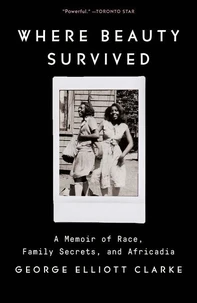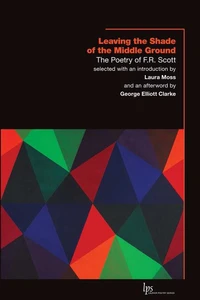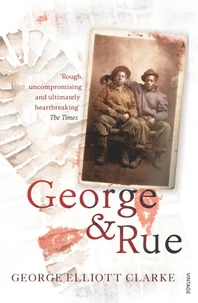Blues and Bliss. The Poetry of George Elliott Clarke
Par : ,Formats :
Disponible dans votre compte client Decitre ou Furet du Nord dès validation de votre commande. Le format ePub est :
- Compatible avec une lecture sur My Vivlio (smartphone, tablette, ordinateur)
- Compatible avec une lecture sur liseuses Vivlio
- Pour les liseuses autres que Vivlio, vous devez utiliser le logiciel Adobe Digital Edition. Non compatible avec la lecture sur les liseuses Kindle, Remarkable et Sony
 , qui est-ce ?
, qui est-ce ?Notre partenaire de plateforme de lecture numérique où vous retrouverez l'ensemble de vos ebooks gratuitement
Pour en savoir plus sur nos ebooks, consultez notre aide en ligne ici
- Nombre de pages90
- FormatePub
- ISBN978-1-55458-684-4
- EAN9781554586844
- Date de parution07/04/2011
- Protection num.Digital Watermarking
- Taille2 Mo
- Infos supplémentairesepub
- ÉditeurWilfrid Laurier University Press
Résumé
Blues singer, preacher, cultural critic, exile, Africadian, high modernist, spoken word artist, Canadian poet-these are but some of the voices of George Elliott Clarke. In a selection of Clarke's best work from his early poetry to his most recent, Blues and Bliss: The Poetry of George Elliott Clarke offers readers an impressive cross-section of those voices. Jon Paul Fiorentino's introduction focuses on this polyphony, his influences-Derek Walcott, Amiri Baraka, and the canon of literary English from Shakespeare to Yeats-and his "voice throwing, " and shows how the intersections here produce a "troubling" of language.
He sketches Clarke's primary interest in the negotiation of cultural space through adherence to and revision of tradition and on the finding of a vernacular that begins in exile, especially exile in relation to African-Canadian communities. In the afterword, Clarke, in an interesting re-spin of Fiorentino's introduction, writes with patented gusto about how his experiences have contributed to multiple sounds and forms in his work.
Decrying any grandiose notions of theory, he presents himself as primarily a songwriter.
He sketches Clarke's primary interest in the negotiation of cultural space through adherence to and revision of tradition and on the finding of a vernacular that begins in exile, especially exile in relation to African-Canadian communities. In the afterword, Clarke, in an interesting re-spin of Fiorentino's introduction, writes with patented gusto about how his experiences have contributed to multiple sounds and forms in his work.
Decrying any grandiose notions of theory, he presents himself as primarily a songwriter.
Blues singer, preacher, cultural critic, exile, Africadian, high modernist, spoken word artist, Canadian poet-these are but some of the voices of George Elliott Clarke. In a selection of Clarke's best work from his early poetry to his most recent, Blues and Bliss: The Poetry of George Elliott Clarke offers readers an impressive cross-section of those voices. Jon Paul Fiorentino's introduction focuses on this polyphony, his influences-Derek Walcott, Amiri Baraka, and the canon of literary English from Shakespeare to Yeats-and his "voice throwing, " and shows how the intersections here produce a "troubling" of language.
He sketches Clarke's primary interest in the negotiation of cultural space through adherence to and revision of tradition and on the finding of a vernacular that begins in exile, especially exile in relation to African-Canadian communities. In the afterword, Clarke, in an interesting re-spin of Fiorentino's introduction, writes with patented gusto about how his experiences have contributed to multiple sounds and forms in his work.
Decrying any grandiose notions of theory, he presents himself as primarily a songwriter.
He sketches Clarke's primary interest in the negotiation of cultural space through adherence to and revision of tradition and on the finding of a vernacular that begins in exile, especially exile in relation to African-Canadian communities. In the afterword, Clarke, in an interesting re-spin of Fiorentino's introduction, writes with patented gusto about how his experiences have contributed to multiple sounds and forms in his work.
Decrying any grandiose notions of theory, he presents himself as primarily a songwriter.







